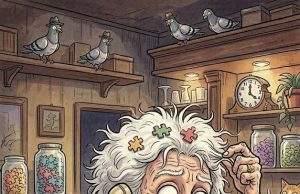As spring makes way for summer, it’s about time your fan gets into action. The soothing air from your fan dries sweat and cools you down, but is sleeping with a fan on bad for health?
Most people enjoy the cooling and comfortable breeze of a fan. But excess wind makes the air dry. When you sleep, this dry air may affect your breathing, causing sleep disruptions. It can even aggravate your allergies, making you uncomfortable throughout the night. Below, we list 4 disadvantages of sleeping with the fan on.

1. Drying
If you have air literally blowing all around the room, it makes perfect sense that this could have drying effects on the body.
This is why a lot of people might wake up feeling a little ill in the morning – their throats or mouths might be dry, especially if they tend to sleep with their mouths open!
You might also feel a dry nose or dry eyes, resulting in a stuffy nose or reddened eyes.
In the most extreme of cases, sometimes you might even get nosebleeds.
2. Asthma And Allergies
Those who already experience allergic reactions or asthma might find them exacerbated by having the fan on.
This is because fans move the air, leading to all sorts of allergens being circulated through the air.
This is even more troubling if you have the window open – you’re opening yourself up to all sorts of pollen, dust, mold, and allergic materials.
If you tend to wake up short of breath or sneezing, this might be why.
3. Causes Congestion
Leaving the fan on can dry out your nose and throat. Excessive dryness triggers the overproduction of mucus, causing sinusitis, headaches, and a stuffy nose.
To alleviate the dryness, you can drink some water, but waking up to drink over and over interrupts sleep.
4. May Aggravate Muscle Aches
Cold air circulating close to you can cause muscle contractions. If you already have pre-existing muscle pain, it may worsen when you sleep with the fan on. The concentrated flow of cool air makes muscles tense up and cramp.
Sleeping with the air conditioner on at night can cause the same problem. To prevent waking up sore, it’s best to set your room temperature between 60 and 67 degrees Fahrenheit.
How To Minimize the Negative Effects of Sleeping With the Fan On
Though sleeping with the fan on may be bad for your health, there are ways to minimize its negative effects. The fan’s speed and distance from you determine its degree of impact on your health. Keeping the fan further away from you or setting a timer can prevent nasal congestion, headaches, muscle aches, and eye dryness.
Buy a Rotating Fan
A rotating fan prevents the constant flow of air in one direction. Evenly distributed airflow keeps you cool while potentially preventing stiff neck, muscle aches, dry nose, mouth, and eyes.
Use Air Filters
Air filters in the room can reduce the circulation of dust-mites, spores, and other allergens. Using one may be beneficial for those prone to allergies.
Set a Timer
You can set a timer on the fan so it turns off an hour or a couple of hours after your bedtime. It eliminates the risk of a cold breeze blowing throughout the night, which can leave you feeling uncomfortable.
Keep Fan at a Distance
If you keep the fan 2 to 3 feet away, the concentrated airflow won’t affect you as much. You’ll have a light breezy sleeping environment instead of a gust of air blowing directly on you. If you sleep with the ceiling fan on, keep the fan on a moderate speed to prevent excessive dryness.
References: amerisleep.com, relayhero.com



















